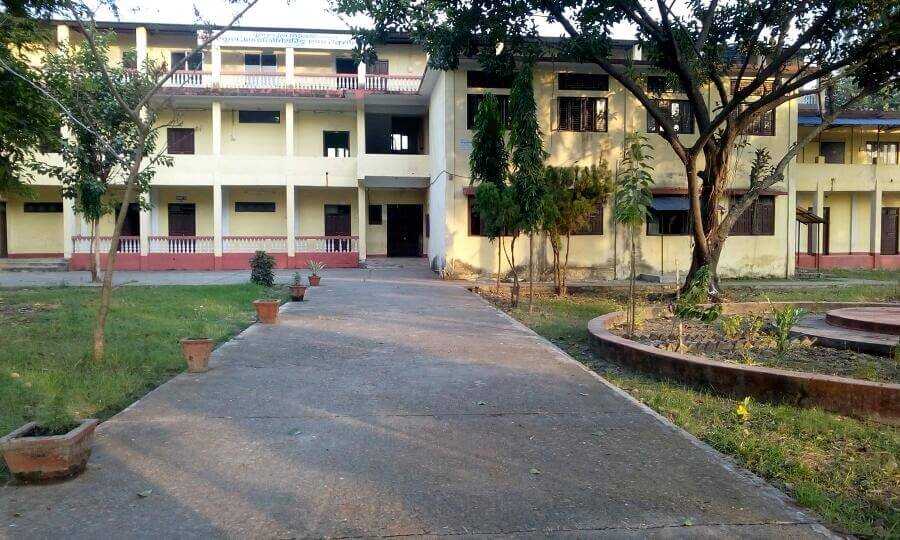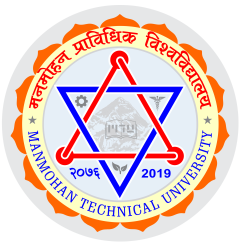Overview
Bachelor of Engineering in Electrical at PUSOE
The Bachelor of Engineering (BE) program in Electrical Engineering at Purbanchal University School of Engineering (PUSOE), Biratnagar, Nepal, is an undergraduate course that provides a complete understanding of the principles and applications of electrical engineering.
This program, affiliated with Purbanchal University (PU), covers various topics, including power systems, electronics, control systems, and electrical machines. The program aims to prepare students for careers in diverse areas of the electrical engineering field. This program is developed to meet the growing needs of the industry by producing skilled electrical engineers.

Curriculum Details
The BE in Electrical Engineering curriculum at PUSOE is structured to provide a strong foundation in electrical engineering principles, with opportunities to specialize through elective courses. The program is planned to balance theoretical knowledge with hands-on practical experience. It includes core courses, electives, and project work, which provides a thorough understanding of electrical engineering concepts.
Core Courses
These courses cover the fundamental areas of electrical engineering. Core courses include topics such as:
-
Circuit Theory: This course introduces the basic principles of circuit analysis, including DC and AC circuits and network theorems.
-
Electromagnetic Fields: Students study the principles of electromagnetic fields, including static fields, time-varying fields, and wave propagation.
-
Electrical Machines: This course covers the principles, operation, and control of various electrical machines, such as transformers, DC motors, and AC motors.
-
Power System Analysis: Students learn how to analyze power systems, including load flow studies, fault analysis, and stability studies.
-
Control Systems: This course covers the principles and techniques for designing and analyzing control systems, including feedback and digital control.
-
Electronics: The course reviews basic electronics, including semiconductor devices, amplifiers, and digital logic circuits.
Elective Courses
Students can choose from elective courses that let them focus on specific areas of interest within electrical engineering. Some common elective areas include:
-
Power Electronics: The course covers power electronic devices, converters, and their applications in different electrical systems.
-
Renewable Energy Systems: This topic explores the use of solar, wind, and other valuable renewable energy resources for power generation and integration.
-
High Voltage Engineering: Students learn about high-voltage phenomena, insulation coordination, and testing techniques.
-
Instrumentation and Measurement: This course examines the principles of measurement, sensors, and instrumentation systems.
-
Embedded Systems: This covers the design and implementation of embedded systems using microcontrollers and microprocessors.
Objectives
The main aims of the BE in Electrical Engineering program are:
-
To give students a strong knowledge base of the principles and practices of electrical engineering.
-
To prepare graduates to solve real-world problems using engineering methods and techniques.
-
To develop the skills to design, analyze, and test electrical systems and devices.
-
To promote ethical and professional conduct in engineering practices.
-
To encourage lifelong learning and professional development.
Scope
The program's scope is broad, covering various industries and roles. Graduates of this program will be able to work in different areas. Potential career paths include:
-
Power generation, transmission, and distribution companies.
-
Electrical design and construction firms.
-
Manufacturing industries, such as electrical equipment and machinery.
-
Renewable energy companies.
-
Telecommunication firms for electrical systems and hardware.
-
Government agencies involved in infrastructure development.
-
Research and development organizations.
-
Consulting firms in electrical engineering projects.
Learning Outcomes
Upon successful completion of the BE in Electrical Engineering program, students should be able to:
-
Apply the concepts of circuit theory to analyze electrical circuits and networks.
-
Understand the principles of electromagnetic fields and their application in electrical systems.
-
Operate and control different types of electrical machines.
-
Analyze and design power systems for generation, transmission, and distribution.
-
Design and implement control systems for different applications.
-
Different testing and measurement methods for electrical devices are used.
-
Use engineering tools and software for analysis, design, and simulation.
Skill Development Modules
The program integrates various skill development modules to improve both technical and soft skills:
-
Circuit Simulation Software: Training on software such as Multisim and PSpice for circuit design and analysis.
-
MATLAB/Simulink: MATLAB is used for numerical computation, data analysis, and simulation of engineering systems.
-
Hardware Labs: Hands-on practical sessions on various electrical and electronic equipment.
-
Microcontroller Programming: Skills to program and implement applications using microcontrollers and processors.
-
Project Management Skills: Training on planning and managing engineering projects.
-
Technical Communication: Skills to prepare technical reports and presentations.
Teaching Methodology
The teaching methodology at PUSOE is designed to promote active learning and student engagement:
-
Lectures: Formal lectures delivered by expert faculty to present key concepts and theories.
-
Tutorials: Regular tutorial sessions for problem-solving and addressing student doubts.
-
Lab Sessions: Hands-on practical sessions in well-equipped labs with experiments.
-
Project Work: Individual and group projects that allow students to apply their knowledge to real-world problems.
-
Seminars: It has guest lectures and workshops by industry professionals.
-
Case Studies: Analysis of real-world engineering problems to learn practical approaches.
Faculty Expertise
The faculty members at PUSOE are experts in different areas of electrical engineering. They have academic and industry experience, which allows them to bring practical learning to their teaching. They are also involved in research, which enhances their teaching abilities. The faculty includes professors and assistant professors with advanced degrees from recognized universities.
Hence, students benefit from good teaching and guidance. The faculty is dedicated to the success of their students and provides individual help when required.
Admission Requirements
To be considered for admission to the BE in Electrical Engineering program at PUSOE, applicants must:
-
Have completed 10+2 in the Science stream or its equivalent, with Mathematics, Physics, Chemistry, and English as main subjects.
-
Have obtained a minimum aggregate mark of 45% in the qualifying examination.
-
Meet any additional requirements specified by Purbanchal University and PUSOE.
Career Opportunities
The BE in Electrical Engineering program graduates have a wide range of career opportunities. The knowledge and skills they gain from the program will qualify them for positions in different sectors. Some potential job roles are:
-
Electrical Engineer
-
Power Systems Engineer
-
Control Systems Engineer
-
Electronics Engineer
-
Design Engineer
-
Project Manager
-
Instrumentation Engineer
-
Renewable Energy Engineer
-
Research and Development Engineer
Student Life and Extracurricular Activities
Student life at PUSOE is designed to be both academically enriching and personally fulfilling. The college motivates students to be involved in ECA, which creates a suitable environment for personal and professional development. Students have many chances to engage in sports, cultural events, technical clubs, and other events. These activities help to create a sense of community and also help develop students' various talents.
Scholarships and Financial Aid
PUSOE offers several scholarships and financial aid programs to support qualified students. These programs are designed to ensure that higher education is available to all students regardless of their background. The university website provides further detailed information about the available scholarships and the application process.
Why Choose This Course?
The BE in Electrical Engineering program at PUSOE provides a thorough educational experience. It provides a strong base of theoretical knowledge and practical skills and gives students opportunities to apply their learning in practical settings. The college also has links with the industry, which may lead to practical training opportunities and career openings. Those who want a strong career in electrical engineering will find this program very useful.
Why Choose This College?
PUSOE provides a good learning environment with modern facilities and a faculty dedicated to teaching. Students at PUSOE have access to all the resources they require to succeed in the field of electrical engineering. The school focuses on innovation and research, which is a platform for those wanting to develop their skills. PUSOE is known for providing quality education and preparing qualified professionals for the field.
Conclusion
The BE in Electrical Engineering program at PUSOE is a great choice for students wanting a career in electrical engineering. The program provides a combination of theory and practical skills and is designed to prepare students for many different job roles. By focusing on quality teaching, practical experiences, and a strong sense of ethics, PUSOE ensures its graduates are ready to contribute positively to the world of electrical engineering.















